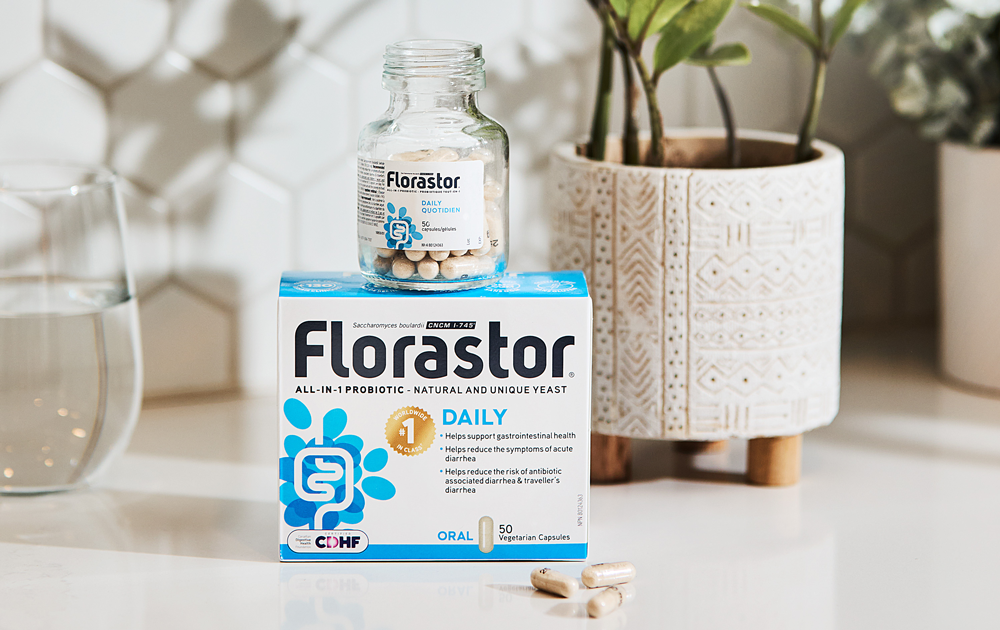How Gut Health Can Improve Your Overall Well-Being In 5 Unexpected Ways!

Problems with the digestive system, such as heartburn, gas, bloating, and constipation show just how complex a mechanism your body is.
Imbalances in the gastrointestinal flora and the diversity of the bacteria population in the digestive tract are key factors that could have an effect on your gut health. In fact it has been noted that you are less likely to suffer damaging inflammation and loss of immunity when your intestinal health is good-standing.
Since it’s not just about food, the following ways your gut health is linked to your well-being may seem … surprising!
A healthy gut is important for immune function
It could help protect your body against allergies and autoimmune diseases like Crohn’s disease or arthritis.
About 100 trillion living microorganisms are found in the intestine. They promote normal gastrointestinal function, protect the body from infections, regulate metabolism and the immune system.
In fact, they make up over 70% of the immune system, hence the importance of maintaining good gastrointestinal health!
A healthy gut contributes to a strong immune system and supports heart health, brain health, improved mood, healthy sleep, and efficient digestion.
By strengthening your immune system, a healthy gut could help protect you against allergies and autoimmune diseases like Crohn’s disease or arthritis.
Gut health can affect your mood
The intestinal microbiota will indeed induce changes in the response of our brain. The gut and the brain are closely linked, allowing the brain to influence gut functions, including the activity of functional immune effector cells; and the gut to influence mood, cognition and mental health.
Scientists have also found that many other neurotransmitters such as dopamine, norepinephrine, acetylcholine, and GABA – essential for mood, anxiety, focus, and motivation – are generated by bacteria in the gut.
For a balanced mood, exposure and consumption of good bacteria are essential.

It can help you sleep better
The microbiota, sleep and brain activity are closely linked to each other.
Indeed, recent research from the University of Tsukuba in Japan indicates that by helping to generate essential chemical messengers in the brain, such as serotonin and dopamine, gut bacteria can also influence normal sleep patterns.
By maintaining a healthy intestinal flora, you guarantee yourself a quality night’s sleep!
Healthy gut bacteria may be linked to a lower risk of obesity and diabetes
In the rise of obesity and diabetes in the population, changes in the gastrointestinal microbiota have been identified.
Indeed, poor gut health and obesity are linked. Compared to healthy individuals, the gastrointestinal microbiota of overweight people exhibit patterns of dysbiosis. Ultimately, since there is greater absorption of energy from food due to dysbiosis, this correlates with inflammation and high blood sugar.
This puts into perspective that maintaining a healthy gastrointestinal balance can affect blood sugar levels and intestinal inflammation, reducing the risks associated with obesity and diabetes.
The microbiome in the gut may have an effect on brain development, mental health, and behaviour
As illustrated in point 2, the microbiome in the gut is closely linked to brain development, mental health and behavior. Probiotics can improve your gut health in addition to improving your mood. They may, in fact, indirectly benefit your overall brain health.
A number of studies in recent years have shown that the central nervous system (CNS) and the enteric nervous system (ENS) have significant bi-directional connections, linking emotional and cognitive centres of the brain with peripheral intestinal functions.
By influencing neural and immune processes, the billions of bacteria that live in the gut play a key role in gut-brain communication.
- Thursby, Elizabeth, and Nathalie Juge. “Introduction to the human gut microbiota.” The Biochemical journal vol. 474,11 1823-1836. 16 May. 2017
- Institut Pasteur. (2020, December 11). Gut microbiota plays a role in brain function and mood regulation. ScienceDaily. Retrieved April 2, 2021
- Ogawa, Y., Miyoshi, C., Obana, N. et al. Gut microbiota depletion by chronic antibiotic treatment alters the sleep/wake architecture and sleep EEG power spectra in mice. Sci Rep 10, 19554 (2020)
- Davis, Cindy D. “The Gut Microbiome and Its Role in Obesity.” Nutrition today vol. 51,4 (2016): 167-174.Musso, Giovanni et al. “Obesity, diabetes, and gut microbiota: the hygiene hypothesis expanded?.” Diabetes care vol. 33,10 (2010): 2277-84.
- Marwa Azab. “Gut Bacteria Can Influence Your Mood, Thoughts, and Brain”. Psychology today. Aug 07, 2019. Bravo, Javier A et al. “Ingestion of Lactobacillus strain regulates emotional behavior and central GABA receptor expression in a mouse via the vagus nerve.” Proceedings of the National Academy of Sciences of the United States of America vol. 108,38 (2011): 16050-5. Tillisch, Kirsten et al. “Consumption of fermented milk product with probiotic modulates brain activity.” Gastroenterology vol. 144,7 (2013): 1394-401, 1401.e1-. Valles-Colomer, Mireia et al. “The neuroactive potential of the human gut microbiota in quality of life and depression.” Nature microbiology vol. 4,4 (2019): 623-632.
.jpeg?sw=375&sfrm=png&q=90)


